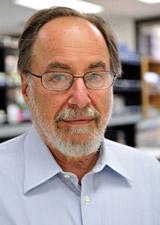
Cellular Responses to Stress and Change
About the speaker

David Baltimore
Massachusetts Institute of Technology
Dr. Baltimore was born in 1938 in New York City. In 1960, after receiving his B.A. Degree with high honors in chemistry from Swarthmore College, he began graduate studies at Massachusetts Institute of Technology. A year later he went to Rockefeller University, where he received his Ph.D. degree in biology in 1964. He was a postdoctoral fellow at MIT in 1963 and 1964 and at Albert Einstein College of Medicine in 1964 and 1965. He returned to MIT in 1968 as associate professor, became professor of biology in 1972, and was appointed American Cancer Society Research Professor in 1973. The following year, he joined the staff of the MIT Center for Cancer Research. In 1982, he was named the first Director of the Whitehead Institute. He became President of the Rockefeller University in July 1990, and resigned from that position in December 1991, remaining as a Professor of Biology on the faculty. In 1994 he rejoined the MIT faculty as the Ivan R. Cottrell Professor of Molecular Biology and Immunology.
Dr. David Baltimore is a leader in science who has worked in virology, immunology, transcriptional control, cancer research and AIDS research. He has also been a spokesperson for science on many issues, including genetic research, priorities for national research, and matters of international concern, such as biological warfare and the regulation of science. He was co-chainnan of a major 1986 study of AIDS, sponsored by the National Academy of Sciences and the Institute of Medicine.
In 1970, Dr. Baltimore, simultaneously with Dr. Temin, discovered the enzyme reverse transcriptase that enables cancer-inducing RNA viruses to replicate within the host organism. This discovery made possible many of the developments in biotechnology that were to follow and its presence in human immunodeficiency virus allowed the cause of AIDS to be uncovered. In 1975, at the age of 37, Dr. Baltimore became one of the youngest recipients of the Nobel Prize in Physiology or Medicine.
He is a member of the National Academy of Sciences, the American Academy of Arts and Sciences, the Pontifical Academy of Sciences, the Institute of Medicine, the Board of Governors of the Weizmann Institute of Science in Israel, and a Foreign Member of the Royal Society (England). His many honors include the Warren Triennial Prize, the Eli Lilly and Company Award in Microbiology axl Immunology, the National Academy of Sciences/United States Steel Foundation Award in Molecular Biology, and the Gairdner Foundation Annual Award.
Research in his laboratory presently covers cancer-inducing viruses, the immune system, and infectious diseases.